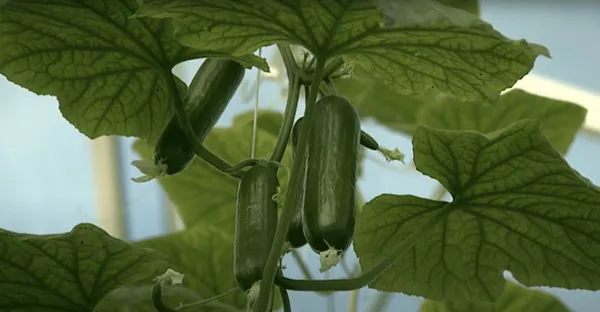The development of a novel low-carbon production system for controlled environment agriculture is now underway, following the launch of the new RIPEHouse project, the team with CHAP solutions announces.
This multi-faceted project will harness the benefits of ‘natural light growing’ alongside bespoke biostimulant formulations to help optimize the nutrition, flavor, and sustainability credentials of fresh produce.
Funded by Defra and UKRI, the work is being conducted by a consortium that includes CHAP, RIPE Building Services, the University of Warwick, Evoponic Ltd, Mudwalls Farm Ltd, and Valefresco Ltd.
CHAP Innovation Network Lead Dr. Harry Langford said: “Unlike glass, ethylene tetrafluoroethylene (ETFE) film transmits full-spectrum sunlight into the growing area. The benefits of this are starting to be explored at CHAP’s Natural Light Growing (NLG) Centre, a structure clad in ETFE.

“The RIPEHouse project plans to take this one step further, by combining natural light growing with the use of bespoke biostimulant products. This will enable UK growers to deliver high-quality, lower carbon produce compared to traditional glasshouse systems. Once completed, this could mean real change for the way in which we grow fresh produce in the UK.”
Natural light
The RIPEHouse project aims to develop and validate the natural light growing system to enable two cycles of production per year for crops such as baby cucumbers. While doing so, it hopes to demonstrate carbon-efficient conditions through comparative trials versus conventional glasshouse production.
Finally, the project will investigate market-disruptive business models, such as local food hubs and meal boxes, to respond to consumer demand for healthier diets and British-grown produce.
Founder and Managing Director of RIPE, Phillip Lee, said: “Independent testing by Campden BRI has already shown that baby cucumbers grown within the NLG Centre rank higher for taste and eating enjoyment compared to those grown in conventional systems. This has provided valuable evidence required to support the ethos behind the center and the use of ETFE in commercial production.
“Furthering this by using biostimulants will enable us to explore how we can improve the resilience and health status of the plants, potentially extending the production season and reducing the reliance on traditional pesticidal products.”
Biostimulants are natural products used to stimulate plant processes such as nutrient uptake, nutrient use efficiency, and protection against abiotic stress. In doing so, this maintains plant health, as the best protection against pest and disease pressure and further plant stresses.
Low-carbon growing
This could also have a positive impact on the use of fossil fuels for heating and CO2-enrichment within a controlled environment agriculture setting.
Joe Pilade, Valefresco Company Director, said: “Efficient and sustainable low-carbon production would mean growers are in a stronger position to meet supply chain demands and reduce imports.
“Meanwhile, consumer demand for creative culinary solutions is increasing, through the likes of local food hubs and meal boxes. This project coordinates many facets of sustainable production, from nurturing the seed to marketing the harvested produce."
The project work will take place at the NLG Centre, based at the University of Warwick’s Wellesbourne Campus.

 CHAP
CHAP